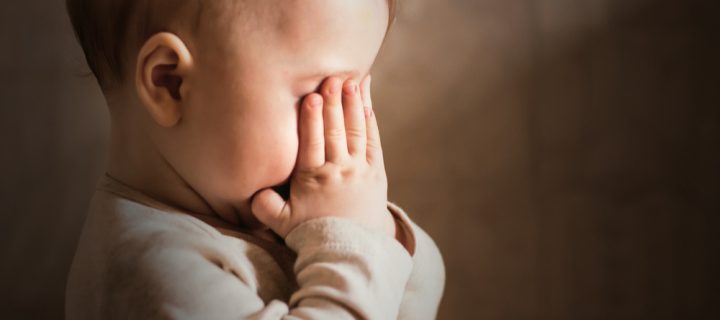Uneven bacterial levels might impact how their brain is developing.
On Father’s Day this year, CNN posted an article about the world’s most premature baby turning one. The miracle boy survived after being born by cesarean about five months premature. He was small enough to fit in the palm of his parents’ hands, a living wonder.
On the outside, this baby now looks similar to many others. On the inside, however, he could be a little different. And he may even act differently.
Experts say a newborn baby’s gut bacteria is influenced by its mother’s bacteria when delivered vaginally. And interestingly enough, the kind of bacteria in a baby’s gastrointestinal tract is linked to how they experience fear. Yes, fear.
Halloween Masks and Health
Researchers from Michigan State University and the University of North Carolina studied how babies react in fearful situations. It was found that babies with an uneven microbiome at 1 month of age were generally more fearful when they turned one year old.
Researchers conducted the pilot study with about 30 infants. All the children were healthy, none were on antibiotics, and all were being breastfed. Samples of the infants’ stool were analyzed. In addition, the babies were tested to see how they would react to someone entering the room wearing a Halloween mask.
Related: Steer Clear of These 4 Foods If Your Bladder is Overactive
“We really wanted the experience to be enjoyable for both the kids and their parents. The parents were there the whole time and they could jump in whenever they wanted,” said Rebecca Knickmeyer, the study’s lead author. “These are really the kinds of experiences infants would have in their everyday lives,” she reassured.
Knickmeyer and her team found that some infants had really strong expressions of fear.
Naturally, this can be problematic.
“Fear reactions are a normal part of child development. Children should be aware of threats in their environment and be ready to respond to them. But if they can’t dampen that response when they’re safe, they may be at heightened risk to develop anxiety and depression later on in life,” Knickmeyer commented.
Bacteria and the Brain
So, how can these heightened emotions be tackled so they don’t become too much?
Researchers said the infants in the study with strong fear reactions had higher levels of certain types of bacteria. They also had lower levels of others. MRI brain images showed these uneven bacteria levels were associated with differences in the size and development of the babies’ amygdala. (The amygdala is the part of the brain that helps you decide what to do about a potential threat. Fight or flight).
So, researchers are pointing out the obvious. They are hinting that we may need to zero in on fostering good bacteria. This could help with neurological development. It could also potentially help reduce mental health problems down the road.
“This early developmental period is a time of tremendous opportunity for promoting healthy brain development,” said Knickmeyer. “The microbiome is an exciting new target that can be potentially used for that.”
How can you calm a child who just won’t settle? Click here for suggestions from the Child Mind Institute. Every child fusses and whines but continued overreactions can be stressful on both the child and caregivers. It could warrant attention.
The study referenced in this post was published in the journal Nature Communications on June 2, 2021.
photo credits: Smolina Marianna/Shutterstock.com












